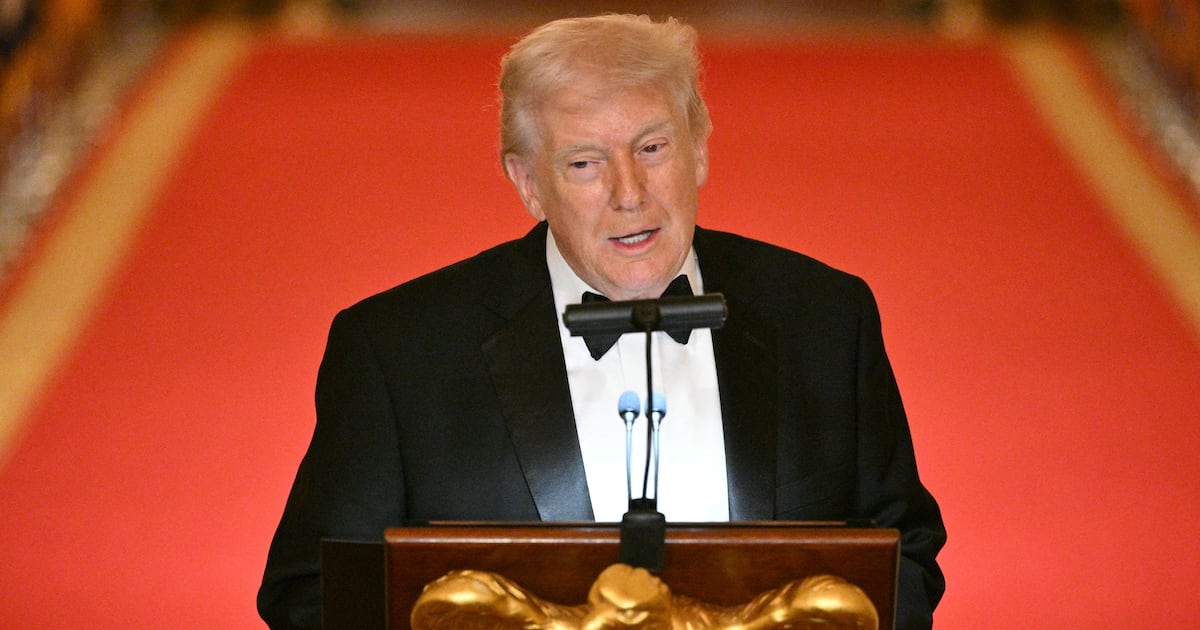This week has given us final proof that we've normalized the Trump era.
We have a president close to trampling over the bedrock of our constitutional system of governance with an emergency declaration to appropriate his own funding for a border wall. At the same time, he is taking even more concrete steps towards legitimizing a nuclear regime by having another ego-stroking sit-down with North Korea’s madman dictator, Kim Jong Un.
On Monday, The Washington Post reported that Trump stood accused of sexually harassing a campaign employee during his run for office in 2016. And in the coming days, the president’s former lawyer—a man closely associated with his business empire and his political rise—will testify three times before Congress about the inherent corruptness of both those ventures.
In any normal universe, any one of these stories would leave us jaw-dropped and politically paralyzed. Lawmakers would be rushing to the cameras to express their concern and condemnation. The media would be overwhelmed by the sheer amount of copy and coverage it would have to produce. Leaks would come from the administration about the profound level of chaos and discontent within.
And yet, this go around, we are all taking it in remarkable stride. It is just another week in Trumpland, and we’ve grown terribly accustomed to these rides.
The public is too overwhelmed to process the Trump overload. We are at the point where this bombardment of Trump—this never-ending fountain of sex, power, Russia, and low-grade corruption—feels perfectly normal. And that’s because it is.
As long as North Korea doesn’t nuke us this week and as long as Michael Cohen doesn’t reveal photographic evidence that Trump and Putin hacked Hillary’s email, this week’s events will recede into the past. Just like any other Trump week.
And what does that really say? For one thing, it means we're not going back. We have reached a new normal. We have adjusted to a different reality.
Just as you can’t unsee a grisly horror film (and restore that sense of innocence that made something as innocuous as the bogeyman feel frightening), we can’t assume the norms of the past will return when Trump does leave office.
This is true for us all, but it is especially true for conservative Republicans who are holding out hope to (someday) take back their party. What Trump has done throughout his presidency has been antithetical to conservatism.
But think about this week in particular: There is an affront to social conservatives (an allegation of sexual assault); a slap in the face to those who champion human rights (by meeting with Kim); an insult to the anti-corruption crew (with Cohen’s testimony); and a middle finger to the institutionalists (with his emergency declaration). Who is left to claim that their intellectual soul is clean?
Let’s take what are arguably the two most important points: North Korea and the congressional vote on the emergency declaration.
The case against an emergency declaration should be obvious for any constitutional conservative. As I noted recently, if a president can simply bypass Congress by declaring something he wants to do an “emergency,” then the only thing that matters is whether a member of Congress will let him.
If a politician is willing to cede legislative authority to the executive branch—a branch that might soon be headed by a Democrat—it hardly matters if he or she is good on taxes or tariffs. As recently as 2014, nearly every conservative in America was on the record as opposing unilateral executive overreach. What changed?
Likewise, there was a time when sharing the stage with a tinhorn dictator from North Korea would have been viewed as dangerous and beneath the dignity of a president. Conservatives believe in negotiating from a position of strength and rhetorically advocating moral clarity. A president who says he and that dictator “fell in love” would have been downright laughable. This behavior cuts against every foreign policy Reaganite instinct.
So why are so many Republicans enabling this reality show?
I suppose an answer to that question can be found in Mark Leibovich’s new profile on Lindsey Graham. In it, you’ll hear the story of a man consumed with getting re-elected in 2020 and staying relevant politically. And maybe that’s not the worst of motives. You can’t make laws if you don’t have power, after all. And Graham can rightly note that he helped partially reverse Trump’s Syria withdrawal, in addition to bolstering the president’s bold stance in Venezuela.
Graham’s premise is that Trump is already president, and the best you can do is to try to influence him as much as possible. The other option is to go on the record and speak out against Trump’s policies. And do you know who doesn’t have much influence these days? Jeff Flake and Bob Corker.
So this is the sad state of conservatism in the Trump era: You can either have your dignity but no influence or relevance, or you can keep your dignity and hit the pavement. This is essentially the choice we have been given, and although it’s easy to mock those who choose to have influence, it’s debatable whether we owe them our pity or our gratitude.
They say you never stand so tall as when you stoop to kiss someone’s ass. If this is true, then Trump is surrounded by giants.







